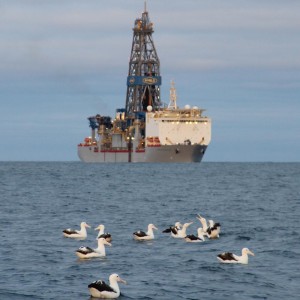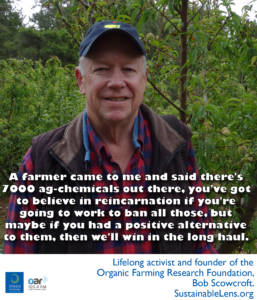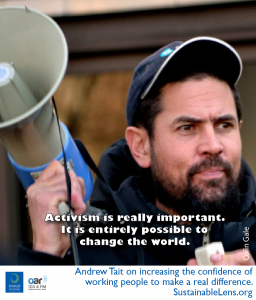
Dr Patricia Widener hails from the Sociology Department of Florida Atlantic University. She studies the effect of the oil industry on communities.
Talking points
I study the conflict and contamination as communities respond to the oil industry.
Even the threat of an oil industry can damage a sense of place
For many places the oil industry is not something people have considered
New communities are being forced to assess what oil means to them. In a way oil has been invisible to us, its always been available to us, it’s such a part of our lives we don’t critically think of all of the meanings petroleum until these new projects are announced.
Oil splits communities.
If people are afraid to take a strong position, that’s a problem, that’s an environment that is not conducive to everyone discussing it, debating it forming their own opinions about it.
If they are not shy about holding a position, but afraid that they’ll be rejected, a stigma for that position. In a democracy shouldn’t be happening, in a democracy, everyone should be comfortable talking about their position, how they got to that position and why they feel strongly about it.
People can be criticised for taking a position against a project – but that’s democracy.
Small businesses in business associations
Communities are not able to assess projects on a equal playing field, they only have tidbits of information.
We say we are aware of climate change and we are addressing it, and yet we are increasing fossil fuel production. To a community that makes no sense. It is confusing for community members who need to make decisions on specific projects that potentially will produce greenhouse gases.
National responses are very mixed, but a community itself has to make a decision on an actual project. It’s not an abstract conversation, it’s a specific project – or potential project that’s coming in.
Both signals are happening. Yes we’re dealing with climate change, yes we’re increasing fossil fuels production and use. Both of these are happening at the same time. People, agencies, governments are saying both without connecting what that actually means.
I’m concerned about the focus on individual energy use, while at the same time giving industry a pass.
Until there are locally alternatives to driving the car – we’re mobile people – we do need to transition, and it’s not happening.
It is a diversion and it is easy to focus on and target the individual, and blame the individual for the problem. And this serves industry to target the individual.
It serves as a diversion to get the eyes, the gaze, the critical thinking away from industry and onto households and individuals.
We still need to drive less, the developed wealthy world, we live beyond our means, beyond the world’s means.
Oil is pleasing, it is so close to our lifestyles, the pleasurable parts of our lifestyles, but we need to be thinking about what it means when other areas or other communities are negatively impacted.
It is really difficult for us to think about how what is pleasing to us may cause someone else’s suffering. We don’t want to dwell on that so we give industry a pass.
We see oil wealth and hope that it is going to solve problems, but it can lead to inequality – it doesn’t mean it is going to reduce poverty and inequality.
Rather than individuals’ choices, the focus has to be on the political economy of oil – to make changes there.
Democracies need spaces.
(On potential for oil jobs in countries of abject poverty) It’s really hard for someone who has a job and isn’t experiencing dire poverty to criticise someone for wanting a (oil) job someone needing a job for themselves and their family, but could there not be developments for other jobs? Ones that are do contribute to the community, that do build livelihood, economic security and sustainability. A concern is when it (an oil job) becomes the only option, and there are no other options for the community – and they are risky jobs.
We need to make connections. The extraction, production, consumption and disposal – that’s the flow of the product, and along the entirety of a product’s life are inequalities, injustices and risks. If we think of ourselves as part of a global society – and we’d like to think we do, then we’re obligated to think of the harms associated with our products.
We can also see a flow of activism or resistance along the flow of petroleum.
We need to disengage from the industry that is causing harm. But we’re in a protracted age of oil, we have a fossil fuel addition. So despite climate change awareness, despite increasing knowledge of harms…we haven’t stopped or slowed down.
The political economy of oil is so entrenched, communities would struggle to resist it.
Industry is working on extraction to depletion.
Ask decision makers: what are you doing about climate change, how is increasing fossil fuel production an answer? I’m not hearing anyone answering this. It is staggering that projects are getting the green light without that question being answered.
What does it mean when we are producing something with global (negative) impacts, are you comfortable with that? And increasingly people are not comfortable with that.
(Am I an activist?). Yes, I’m a sociologist-activist.
We’re seeing the rise of the hyphenated activist…the professor-activist, the lawyer-activist, the farmer-activist, the grandparent-activist, the student-activist. A lot of people are doing both, and they’re doing both because these problems are coming closer to where they live, work, study and play. At that point, when you take a position on something, you have a multiple presence – you are what you are and you’re an activist, or advocate. Not against, but advocating for. For communities, for environment, advocates for – not against.
Be informed, to increase awareness about environment and community, take a position on that, and be heard with regards that position. Democracies rely on that.
Photo: Anadarko’s drill ship the Noble Bob Douglas drilling off the Otago Coast. Credit: Oil Free Otago flotilla.




